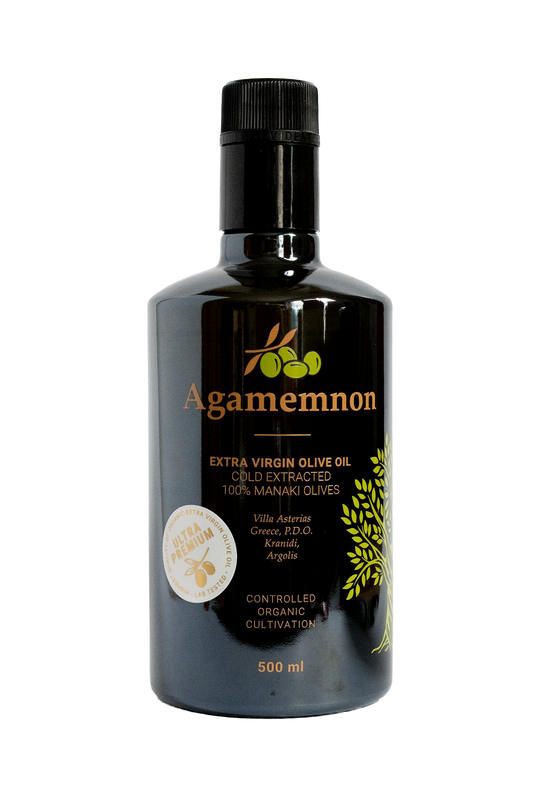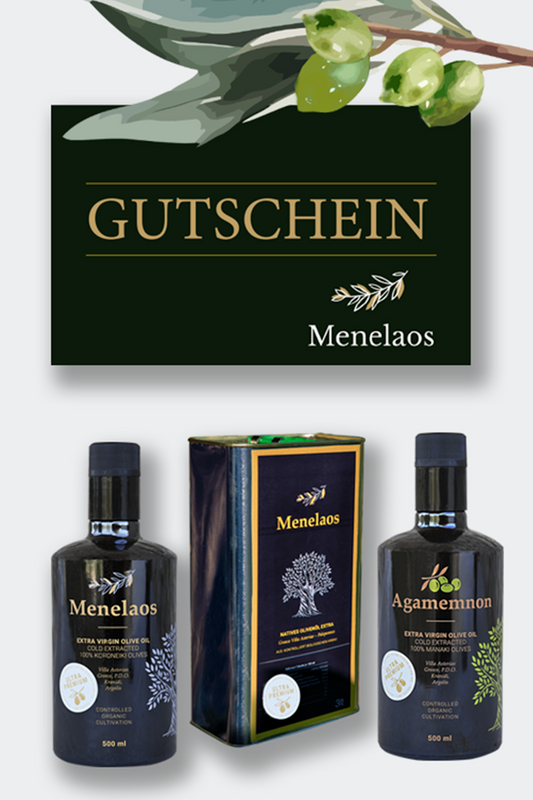Olive Oil and Health
-

The healthiest Edible Oil
- Considered the healthiest edible oil
- Has the lowest production volume of all edible oils worldwide
- Has a health-promoting effect due to its high proportion of monounsaturated fatty acids
- Polyphenols (natural antioxidants) are the main reason for the health benefits of olive oil
- Oleocanthal, discovered in 2005, is particularly important
-

Polyphenols: Oleocanthal
- Anti-inflammatory, like ibuprofen
- Cancer preventative, especially effective against malignant melanoma of the skin
- Potentially lowers stroke risk through effects on blood pressure & cholesterol
- Associated with Alzheimer's prevention
- Reduces risk of type 2 diabetes through positive impact on blood sugar and insulin sensitivity
-

Not every Olive is equal
- Polyphenol content strongly depends on the olive variety
- The Koroneiki olive is one of the few olive varieties that produce olive oil particularly rich in polyphenols
- Low free fatty acid content indicates careful harvesting of not overripe olives and cold extraction
- ≤ 0.8% free fatty acids for extra virgin
- Menelaos has ≤ 0.3% -> ultra premium olive oil
Mortality Risk
In a study, Harvard research scientist Marta Guasch-Ferre shows that replacing 10 grams of butter or margarine with extra virgin olive oil every day can reduce the risk of cardiovascular disease and overall mortality by 8-34 per cent. The EU also confirms that the consumption of olive oil polyphenols has been proven to protect blood lipids from oxidative stress.
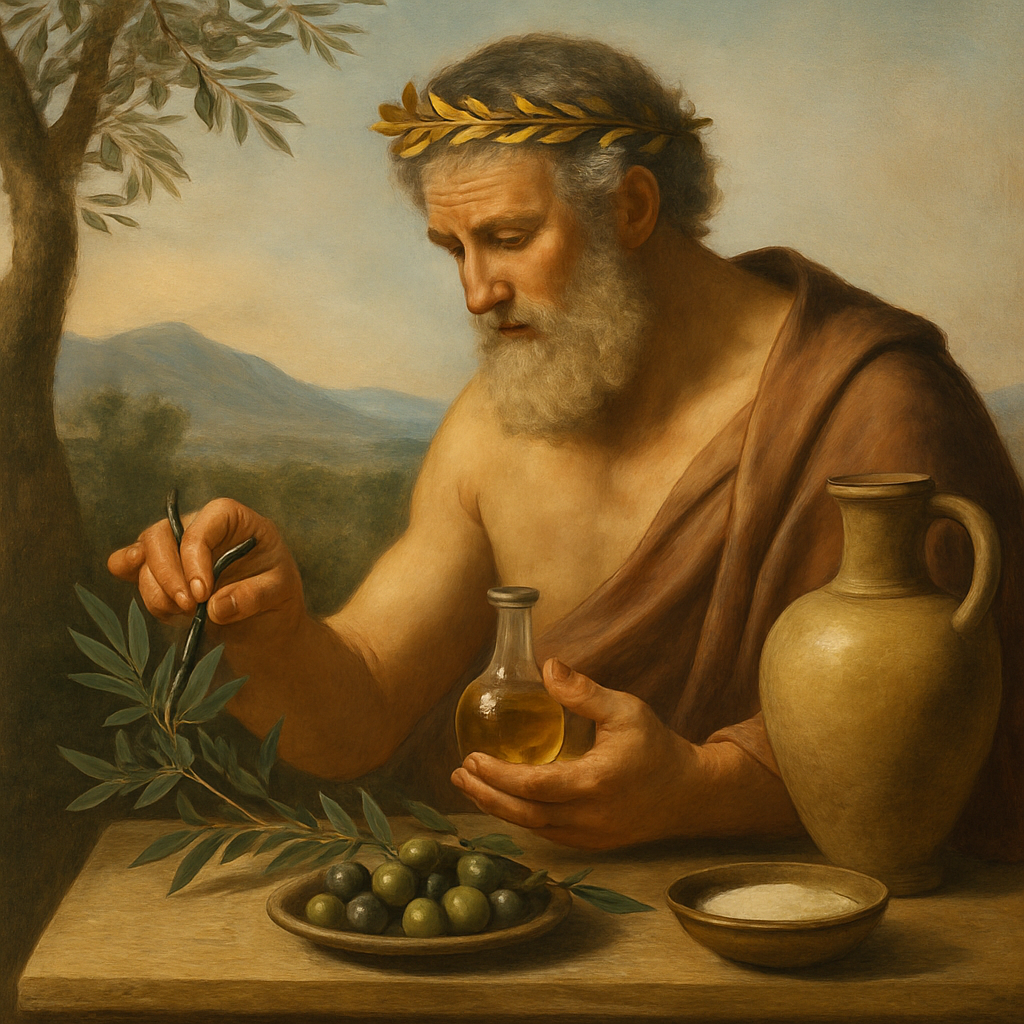
Son of Apollo
The first Olive Grower
Aristaeus, the son of Apollo, a mythical healer and the first olive grower in history, used olive oil to heal wounds and illnesses. Even in ancient times, cold-pressed olive oil was used as a remedy for all kinds of external skin conditions and internal inflammation. It also ranked alongside donkey's milk as a beauty treatment.
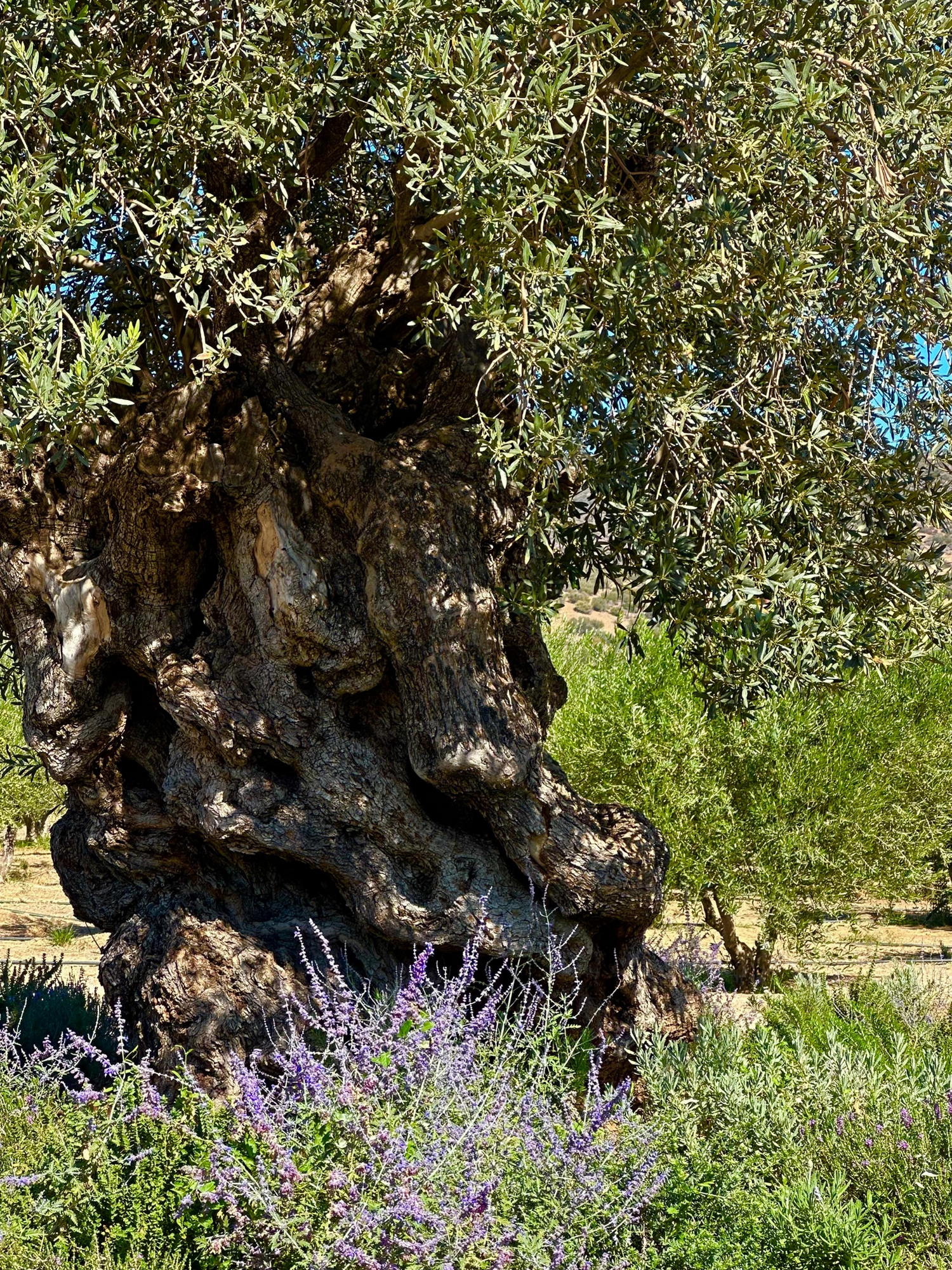
Poseidon vs. Athena
Olive Tree as a Symbol of Greece
In the late Bronze Age, the olive tree began to spread from Crete to Spain. At this time, olive cultivation developed and the use of wild and cultivated olives became widespread. The olive tree is therefore one of the oldest cultivated plants in the world. It is also the symbol of the city of Athens. According to mythology, Poseidon and Athena competed to become the protector of Athens. The god of the sea struck a saltwater spring in the ground with his trident, while the goddess of wisdom planted the olive tree as a symbol of fertility. Athena emerged victorious and the first olive tree she gave to the city gave rise to the sacred olive trees, the destruction of which was punishable by death.
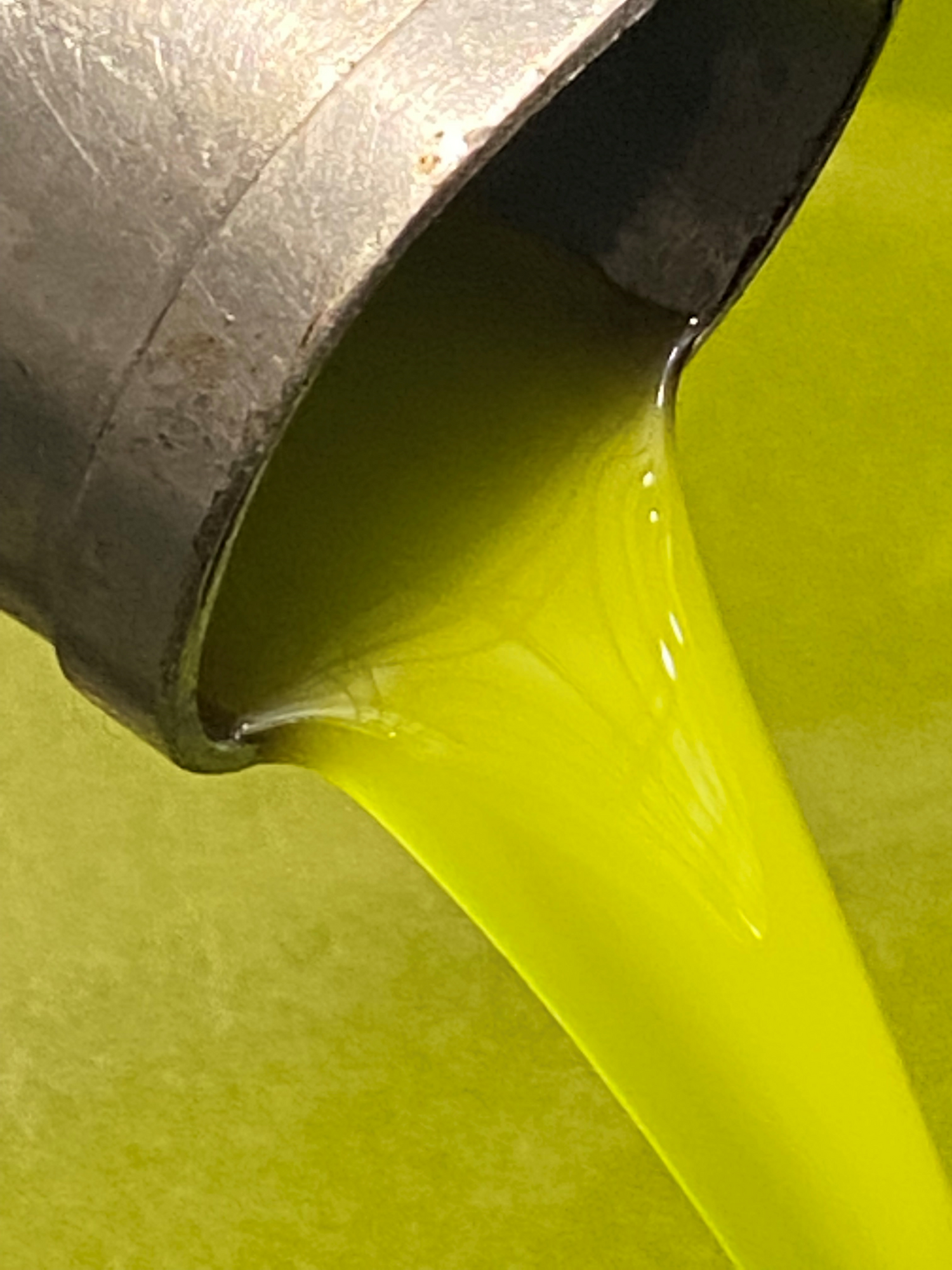
Greece's Green Gold
Tradition instead of Mass Production
With 450,000 tonnes, Greece is the third largest olive oil producer in the world. 75% of this is extra virgin olive oil - making Greece the world leader in the production of premium olive oil. Nevertheless, only 3% of internationally traded olive oil comes from Greece. A third of Greek oil is already consumed by the Greeks themselves: With around 15 litres per capita, the Greeks are world champions in consumption. The majority of the remaining oil is then sold to large Italian brands, which add the Greek premium oil to their own in order to achieve a higher quality. Greek production is mainly based on small, traditional family groves that cannot market themselves economically and therefore have to sell their oil on to large buyers at low prices.
Our Products
-
Menelaos Olivenöl | Flasche 500ml
Regular price 29,90 €Regular priceUnit price 59,80 € / per l29,90 €Sale price 29,90 € -
Agamemnon Ultra-Premium Organic Olive Oil in a 500 ml bottle
Regular price 34,90 €Regular priceUnit price 69,80 € / per l34,90 €Sale price 34,90 € -
Menelaos Olivenöl | Kanister 3L
Regular price 135,00 €Regular priceUnit price 45,00 € / per l135,00 €Sale price 135,00 € -
Menelaos and Agamemnon Ultra-Premium organic olive oil as a gift voucher
Regular price From 29,90 €Regular priceUnit price / per
